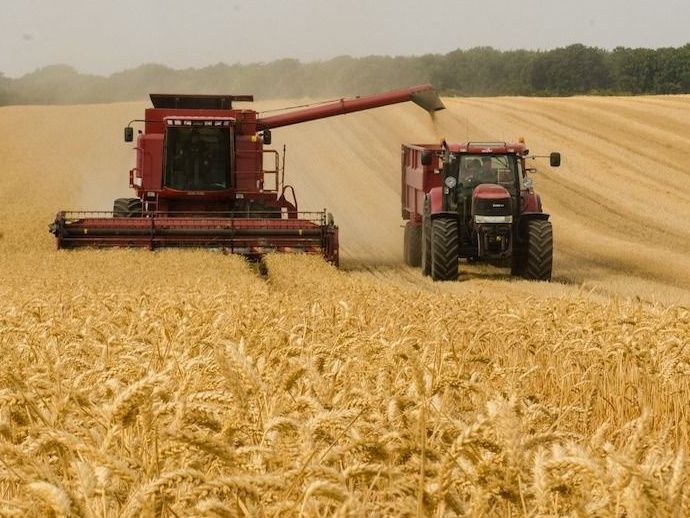Global wheat shortage
The war in Ukraine has had a negative impact on wheat exports worldwide. A study shows: In the long term, global production must increase to compensate for missing exports.

pixabay
The war in Ukraine has reduced wheat exports worldwide. Yield fluctuations and shortfalls due to climate change are further complicating the supply situation in individual regions of the world. As a result, wheat prices have risen sharply. In a recent study published in the journal Global Food Security, scientists argue that in the long term, wheat production must increase worldwide to compensate for the lack of exports. Alternatively, they say, the area on which wheat is grown must be increased. The study involved researchers from TU Munich, INRAE, Purdue University and Wageningen University, as well as ZALF.
In the short term, wheat shortages could be addressed through a coordinated release of wheat stocks, the authors said. In the longer term, however, other countries would have to fill the export gap, which could amount to as much as nine percent of global wheat exports. That would require an additional half-million tons of nitrogen fertilizer, the researchers calculated, and at already high fertilizer prices. Alternatively, wheat acreage would need to be increased by a total of eight percent.
Food security and national security at risk in many countries
Yield fluctuations and climate change-related crop failures are putting additional pressure on the global market. Each year, another five to seven million metric tons of wheat exports could be lost along the way. If no action is taken to stabilize wheat supplies, food security and national security are at risk in many countries around the world, the study's researchers warn.
In 2020, Ukraine produced 26 million tons of wheat. Of that, nearly three-quarters (72 percent) was exported, accounting for nine percent of global wheat exports. Due to the war in Ukraine, only part of the usual amount of wheat could be exported. In addition, only part of the cultivated land in Ukraine can be farmed this year. This means severe economic damage for Ukraine, and a threat to food security for many countries in Africa and Asia, such as Egypt, Indonesia, Pakistan or Lebanon, which depend to a large extent on wheat imports from Ukraine to feed their populations.
Note: This article has been translated using a computer system without human intervention. LUMITOS offers these automatic translations to present a wider range of current news. Since this article has been translated with automatic translation, it is possible that it contains errors in vocabulary, syntax or grammar. The original article in German can be found here.
Most read news
Organizations
Other news from the department business & finance

Get the food & beverage industry in your inbox
By submitting this form you agree that LUMITOS AG will send you the newsletter(s) selected above by email. Your data will not be passed on to third parties. Your data will be stored and processed in accordance with our data protection regulations. LUMITOS may contact you by email for the purpose of advertising or market and opinion surveys. You can revoke your consent at any time without giving reasons to LUMITOS AG, Ernst-Augustin-Str. 2, 12489 Berlin, Germany or by e-mail at revoke@lumitos.com with effect for the future. In addition, each email contains a link to unsubscribe from the corresponding newsletter.




























































